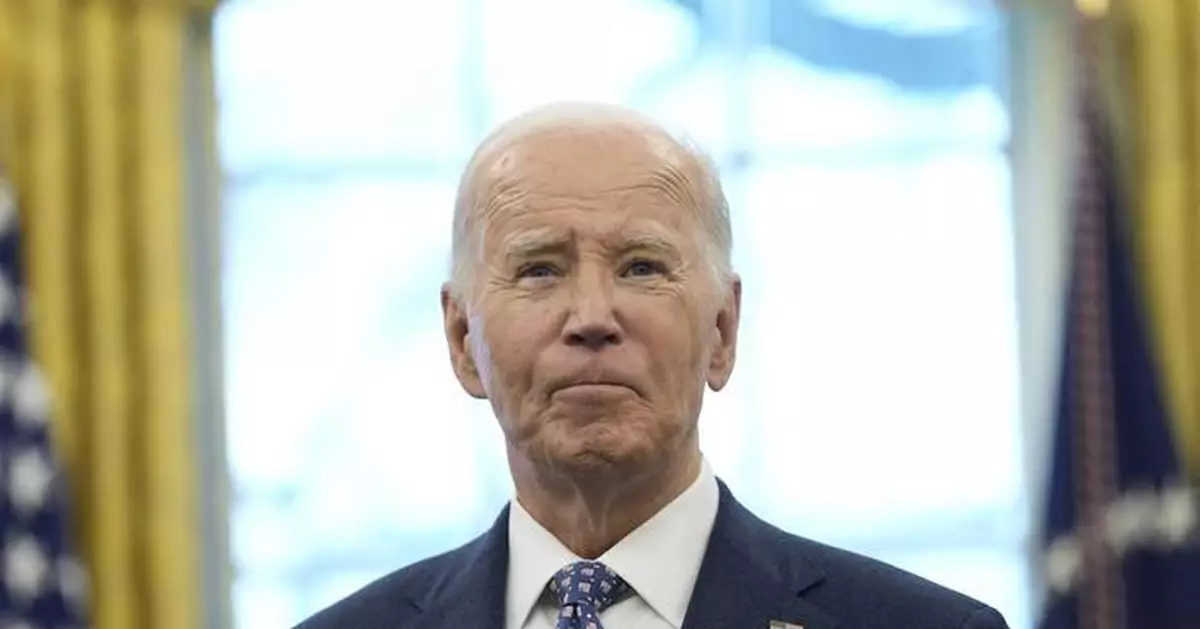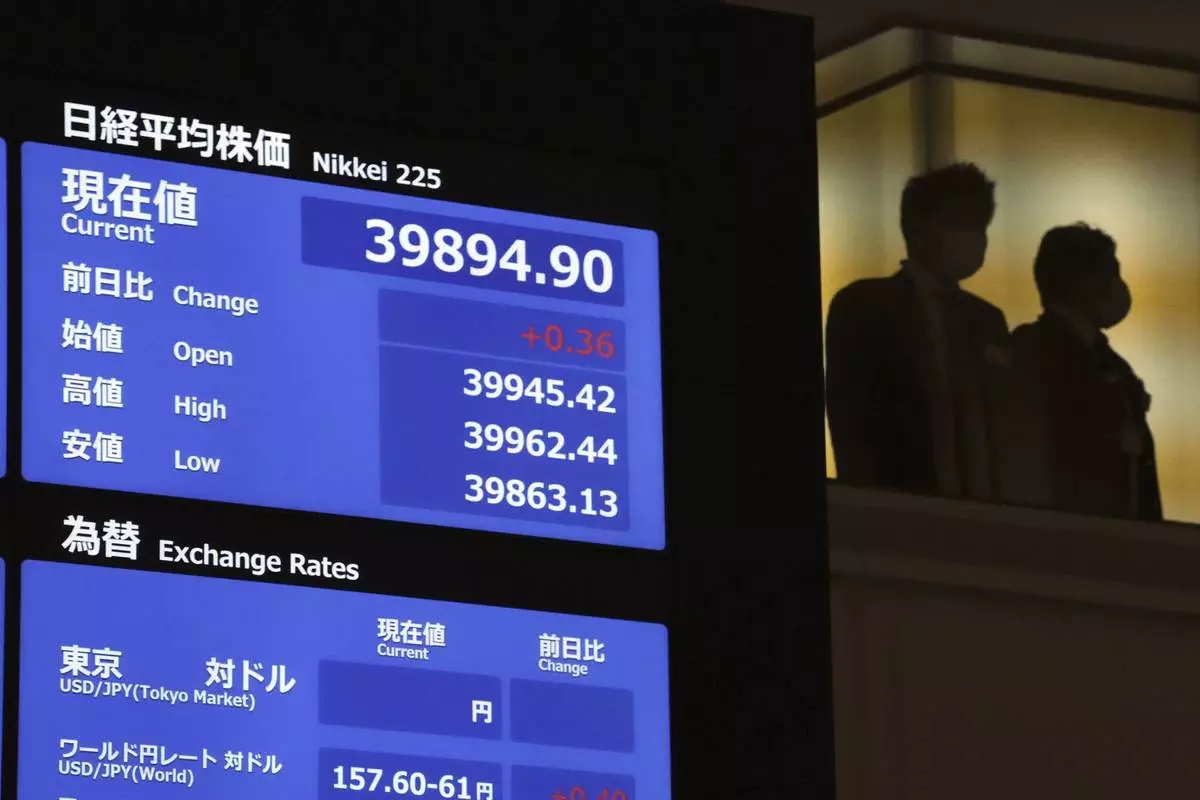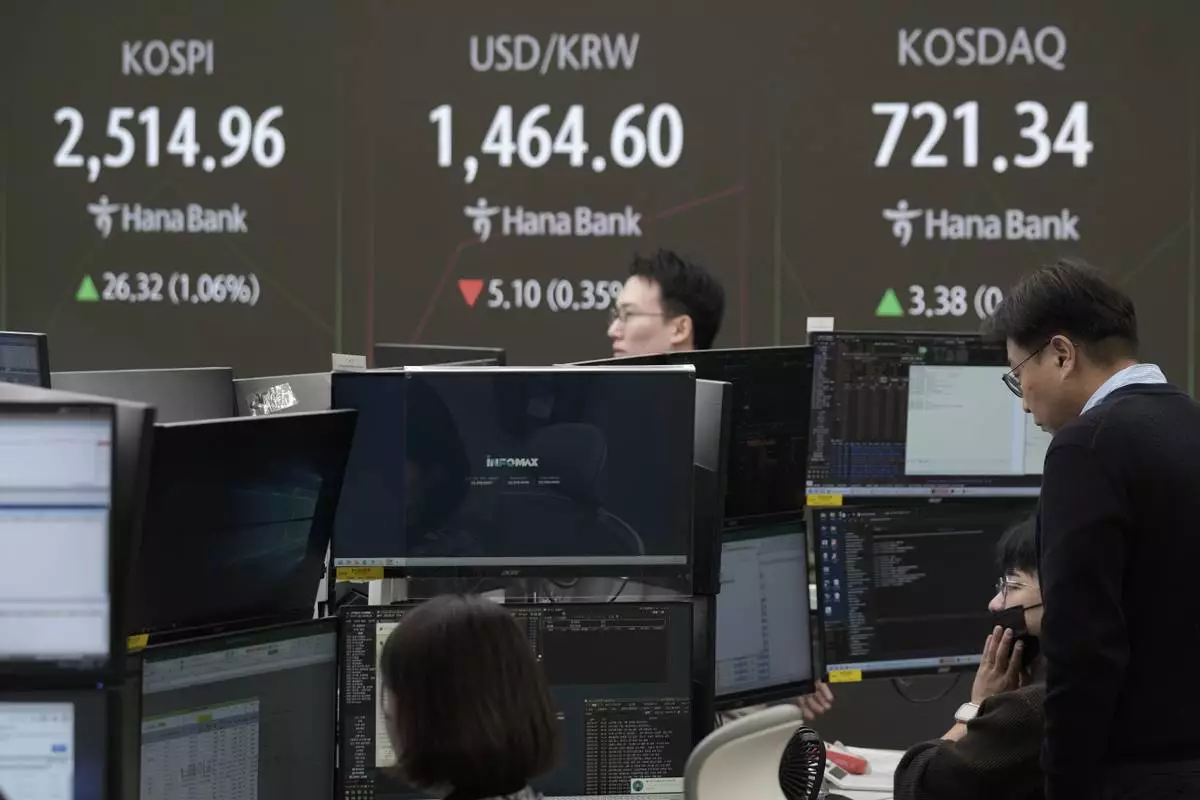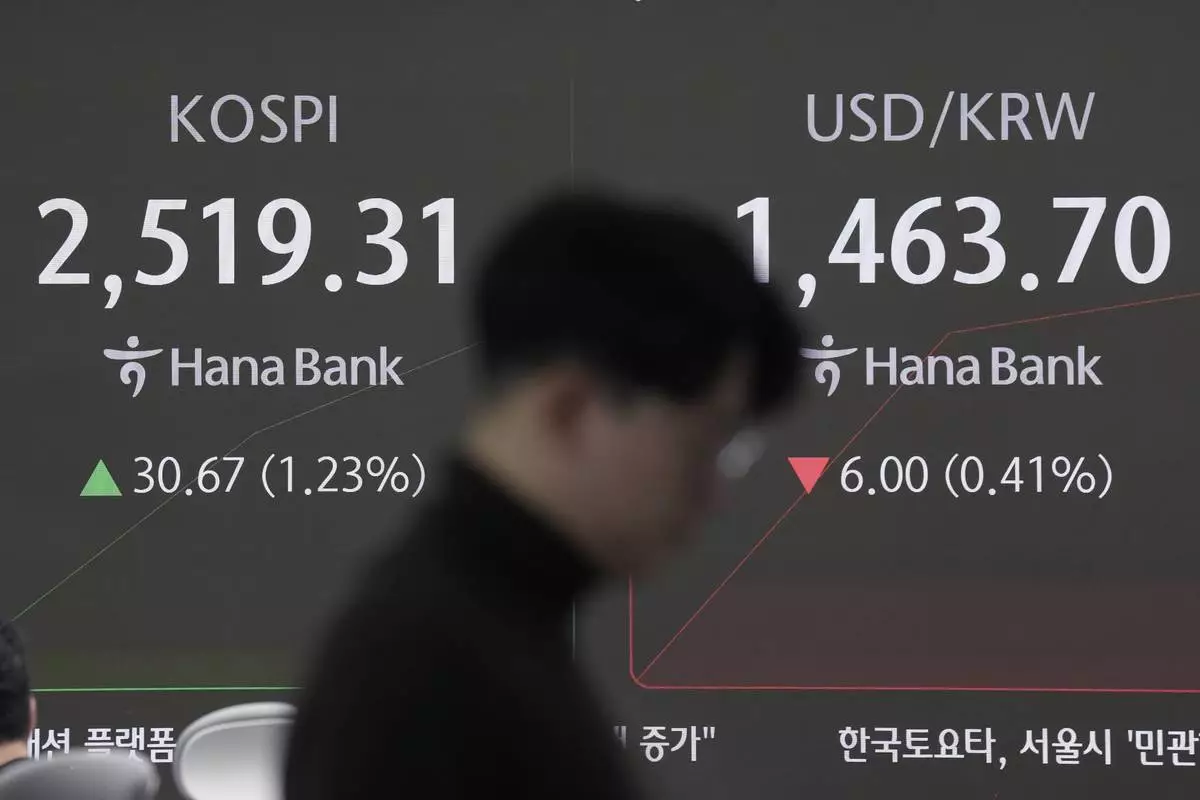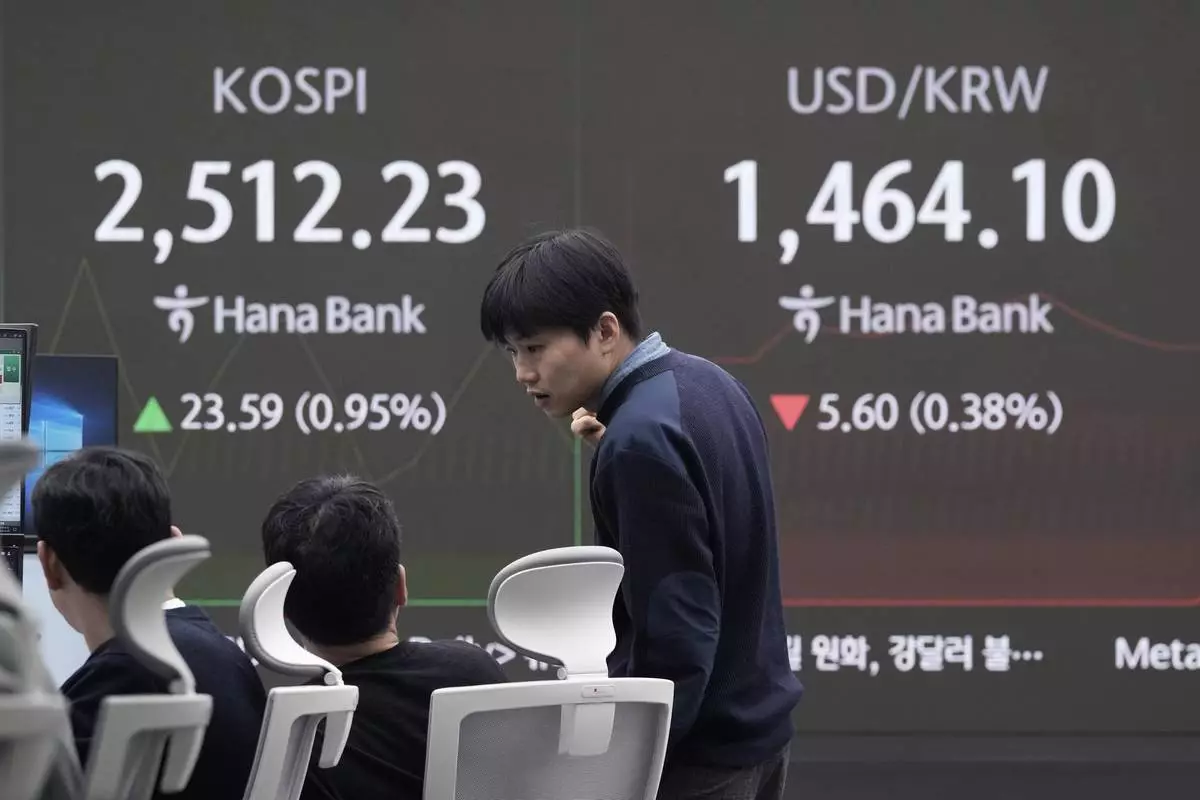WASHINGTON (AP) — President Joe Biden on Sunday signed into law a measure that boosts Social Security payments for current and former public employees, affecting nearly 3 million people who receive pensions from their time as teachers, firefighters, police officers and in other public service jobs.
Advocates say the Social Security Fairness Act rights a decades-old disparity, though it will also put strain on Social Security Trust Funds, which face a looming insolvency crisis.
The bill rescinds two provisions — the Windfall Elimination Provision and the Government Pension Offset — that limit Social Security benefits for recipients if they get retirement payments from other sources, including public retirement programs from a state or local government.
“The bill I'm signing today is about a simple proposition: Americans who have worked hard all their life to earn an honest living should be able to retire with economic security and dignity — that's the entire purpose of the Social Security system,” Biden said during a signing ceremony in the White House East Room.
“This is a big deal,” he said.
Biden was joined by labor leaders, retirement advocates, and Democratic and Republican lawmakers including the legislation's primary sponsors, Maine Republican Sen. Susan Collins and exiting Ohio Democratic Sen. Sherrod Brown, who received a standing ovation from ceremony attendees.
The Congressional Research Service estimated that in December 2023, there were 745,679 people, about 1% of all Social Security beneficiaries, who had their benefits reduced by the Government Pension Offset. About 2.1 million people, or about 3% of all beneficiaries, were affected by the Windfall Elimination Provision.
The Congressional Budget Office estimated in September that eliminating the Windfall Elimination Provision would boost monthly payments to the affected beneficiaries by an average of $360 by December 2025. Ending the Government Pension Offset would increase monthly benefits in December 2025 by an average of $700 for 380,000 recipients getting benefits based on living spouses, according to the CBO. The increase would be an average of $1,190 for 390,000 or surviving spouses getting a widow or widower benefit.
Those amounts would increase over time with Social Security’s regular cost-of-living adjustments.
The change is to payments from January 2024 and beyond, meaning the Social Security Administration would owe back-dated payments. The measure as passed by Congress says the Social Security commissioner "shall adjust primary insurance amounts to the extent necessary to take into account” changes in the law. It's not immediately clear how this will happen or whether people affected will have to take any action.
Edward Kelly, president of the International Association of Fire Fighters, said firefighters across the country are “excited to see the change — we've righted a 40-year wrong.” Kelly said the policy was “far more egregious for surviving spouses of firefighters who paid their own quotas into Social Security but were victimized by the government pension system.”
The IAFF has roughly 320,000 members, which does not include hundreds of thousands of retirees who will benefit from the change.
“Now firefighters who get paid very little can now afford to actually retire," Kelly said.
Brown, who as an Ohio senator pushed for the proposal for years, lost his reelection bid in November. Lee Saunders, president of the American Federation of State, County and Municipal Employees labor union, thanked Brown for his advocacy.
“Over two million public service workers will finally be able to access the Social Security benefits they spent their careers paying into," Saunders said in a statement. "Many will finally be able to enjoy retirement after a lifetime of service.”
National Education Association President Becky Pringle said the law is “a historic victory that will improve the lives of educators, first responders, postal workers and others who dedicate their lives to public service in their communities.”
And while some Republicans such as Collins supported the legislation, others, including Sens. John Thune of South Dakota, Rand Paul of Kentucky and Thom Tillis of North Carolina, voted against it. “We caved to the pressure of the moment instead of doing this on a sustainable basis,” Tillis told The Associated Press last month.
Still, Republican supporters of the bill said there was a rare opportunity to address what they described as an unfair section of federal law that hurts public service retirees.
The future of Social Security has become a top political issue and was a major point of contention in the 2024 election. About 72.5 million people, including retirees, disabled people and children, receive Social Security benefits.
The policy changes from the new law will heap more administrative work on the Social Security Administration, which is already at its lowest staffing level in decades. The agency, currently under a hiring freeze, has a staff of about 56,645 — the lowest level in over 50 years even as it serves more people than ever.
The annual Social Security and Medicare trustees report released last May said the program’s trust fund will be unable to pay full benefits beginning in 2035. The new law will hasten the program’s insolvency date by about half a year.
Associated Press writer Stephen Groves contributed to this report.

President Joe Biden speaks with reporters after signing the Social Security Fairness Act in the East Room of the White House, Sunday, Jan. 5, 2025, in Washington. (AP Photo/Manuel Balce Ceneta)
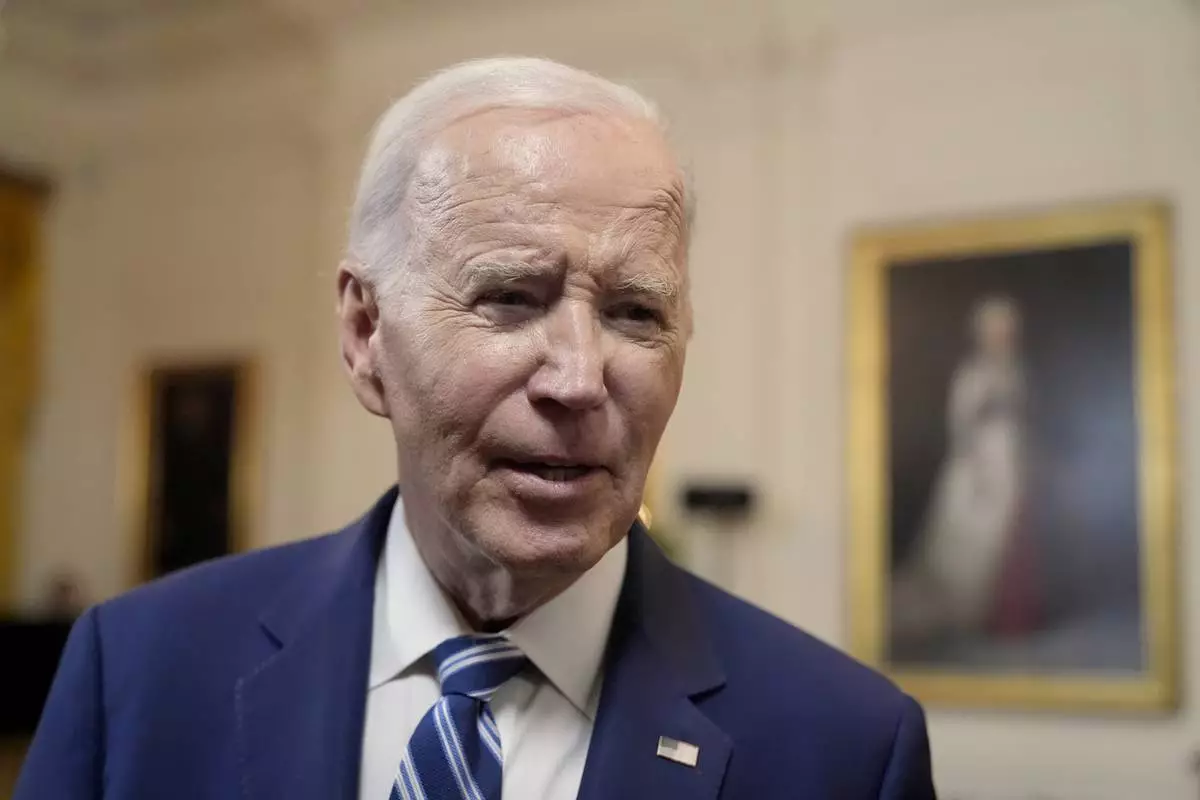
President Joe Biden speaks with reporters after signing the Social Security Fairness Act in the East Room of the White House, Sunday, Jan. 5, 2025, in Washington. (AP Photo/Manuel Balce Ceneta)

President Joe Biden departs the East Room of the White House after signing the Social Security Fairness Act, Sunday, Jan. 5, 2025, in Washington. (AP Photo/Manuel Balce Ceneta)
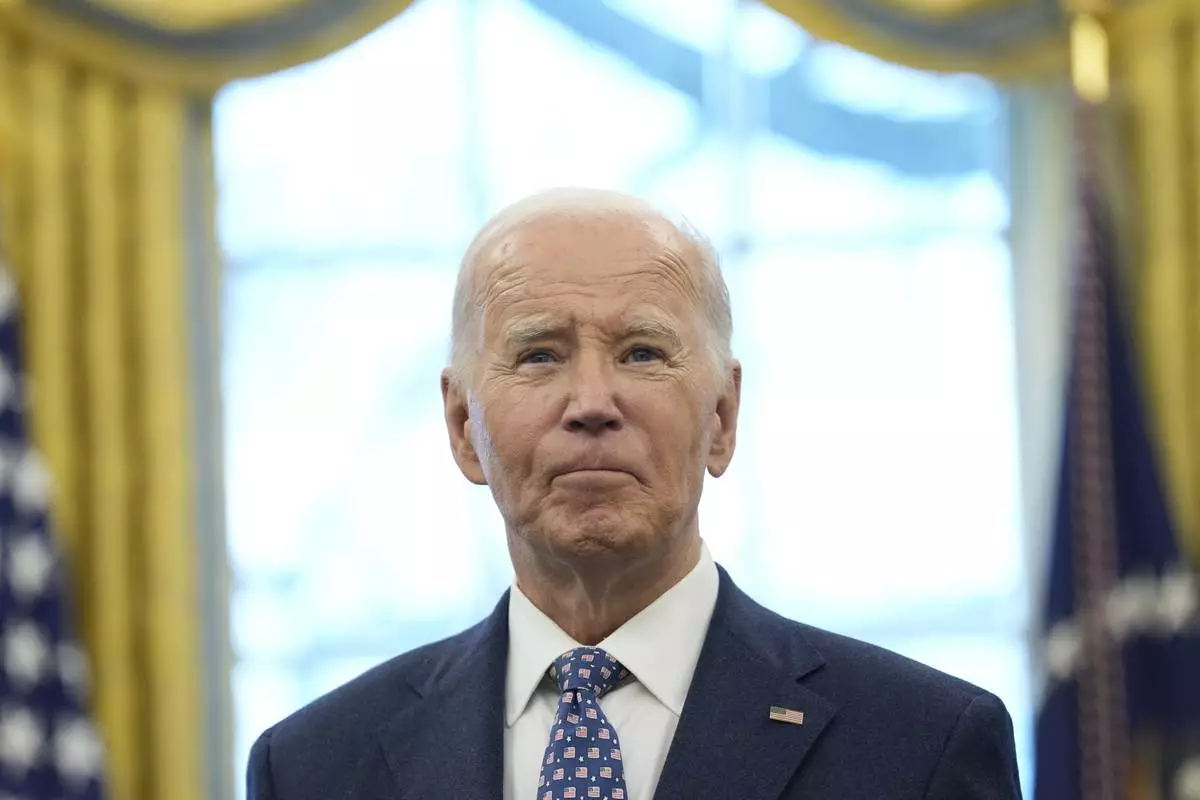
President Joe Biden pauses during a photo opportunity with Medal of Valor recipients in the Oval Office of the White House in Washington, Friday, Jan. 3, 2025. (AP Photo/Susan Walsh)


